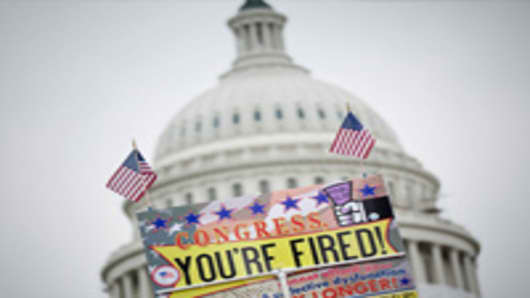At the same time, most Republicans are calling for the permanent extension of all Bush-era tax cuts, which would add $700 billion more to the deficit over the next 10 years than President Obama and Democratic leaders have proposed by continuing only some of the lower rates.
Republicans say extending the cuts will spur economic activity, but that is hardly guaranteed. And the cost of either plan is astronomical: Mr. Obama’s plan will add more than $3 trillion to the deficit; the Republicans’ plan will add more than $4 trillion.
Mr. Boehner, who is the likely speaker in a Republican-controlled House, has also said he would move to overhaul the Congressional appropriations process, to give more power to rank-and-file lawmakers, and cast sunlight on proposed expenditures.
But he is likely to encounter fierce resistance among veteran appropriators who zealously protect the Congressional power of the purse enshrined in the Constitution, and who will be eager to flex the legislative muscle of their committee and subcommittee chairmanships, a main perquisite of winning a majority.
On the campaign trail, many Republicans are calling for a repeal of the health care law, a step that would actually increase the deficit by more than $100 billion over 10 years, according to the Congressional Budget Office, by eliminating some cost-saving provisions — a fact that typically goes unmentioned. Republicans counter that the full cost of the health care law will only kick in later, so that repeal would save money in the long run.
“It’s very easy in the course of a campaign to run against deficit spending as this abstract monster, but when you are actually in power, you have to propose actual policies and follow through on them and that’s something they are much less willing to do,” said John Irons, an economist at the Economic Policy Institute, a liberal-leaning Washington research group.
“Everyone is saying there’s hard choices, there are tough decisions to be made, but not one is actually telling the voters how they would make those tradeoffs,” Mr. Irons said. “No one is saying, ‘Here’s what I would cut.’ The Boehner plan is clearly in that vein.”
Some Republican candidates are pressing the anti-spending message into largely uncharted terrain. Rand Paul, the Republican candidate for Senate in Kentucky, has said Congress must consider paring military programs, putting him at odds with the dominant Republican view since the Reagan era.
A small number of Republicans, notably Representative Paul Ryan of Wisconsin, have called for sharp reductions to Social Security and Medicare to change the nation’s fiscal trajectory. But party leaders and candidates on the stump have largely shunned those proposals, which risk alienating core segments of voters.
As a result, the campaign rhetoric has been largely general if not simplistic.



